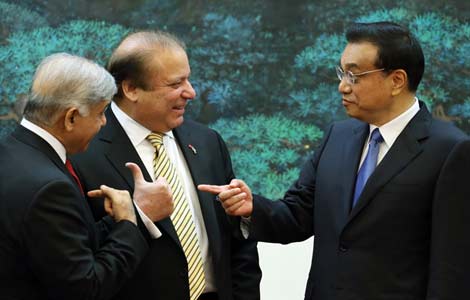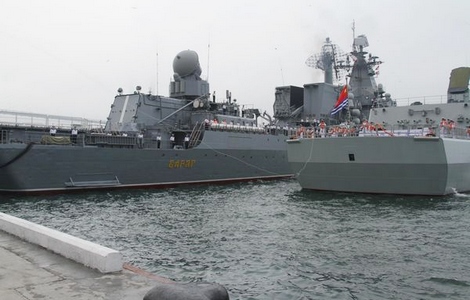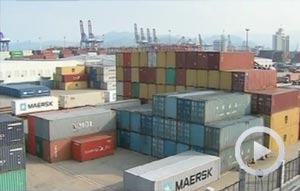Guideline issued to stabilize capital flows
Updated: 2013-07-06 02:16
By CHEN JIA and ZHENG YANGPENG (China Daily)
|
||||||||
Economists see the statement from the top policy maker as a sign that China will press on with reforms despite the continuing slowdown in economic growth.
Zhang Zhiwei, chief China economist at Nomura Securities, said the statement is about changing the allocation of credit, not the policy stance.
"We predict that credit and monetary growth will slow in coming months," Zhang said. Policy will focus more on high-end manufacturing and service industries, he said.
Some enterprises faced with excessive production capacity may see credit defaults in the second half of the year, he said.
Alaistair Chan, a Sydney-based economist with Moody's Analytics, said the Chinese government is tightening monetary policy to deflate an emerging credit bubble.
Yang Jiacai, assistant to the chairman at the China Banking Regulatory Commission, said the banking system is stable, in response to market concerns about financial risks after a "cash crunch". The watchdog will keep tight control on wealth management products.
Risks from local government platform financing loans, real estate credit and international capital flows will be kept under close supervision, the commission official said. The central government will also support banks to transfer non-performing loans in "proper ways" and increase their autonomous rights to manage bad assets.
Vice-Minister of Finance Zhu Guangyao said in Beijing on Friday there is sufficient liquidity in the financial system. But "prominent risks are not only in the shadow-banking area but also in local government financing vehicles, and we do need to be on high alert," Zhu said.
Chang Jian, a senior economist at Barclays Capital, said: "While potential systemic risks are evident, the probability of a meltdown of the financial system remains slim. Large banks are well capitalized with healthy liquidity, facilitated by the 20 percent required reserves at the People's Bank of China."
Hu Bin, a senior analyst with Moody's Investor Service, said although there has been no increase in interest rates or the required reserve ratio, the central bank's reluctance to use open-market operation to offset the effects of foreign capital outflows sends a signal.
"There might be speculation on banks' interbank activities. But you can't say the financial system is not supporting the real economy, given the huge amount of total social financing," Hu said.
"Overcapacity industries, which occupied a large portion of the credit, should be eliminated."

 China-Russia navy drill furthers ties
China-Russia navy drill furthers ties
 Famed monkey takes a new direction in New York
Famed monkey takes a new direction in New York
 China, Pakistan ink transport pact
China, Pakistan ink transport pact
 Passenger car sector outlook brightens
Passenger car sector outlook brightens
 Multinationals face increased scrutiny
Multinationals face increased scrutiny
 Kobe Bryant reportedly has highest net worth in NBA
Kobe Bryant reportedly has highest net worth in NBA
 Chinese fleet arrives in Vladivostok for drills
Chinese fleet arrives in Vladivostok for drills
 Joey Chestnut wins 7th contest with 69 dogs
Joey Chestnut wins 7th contest with 69 dogs
Most Viewed
Editor's Picks

|

|

|

|

|

|
Today's Top News
Nicaragua willing to grant Snowden asylum
High hopes for China-US talks
Li: 'India is an important neighbor'
US missile interceptor test fails
Multinationals face increased scrutiny
China, Pakistan ink transport pact
Guideline to stabilize capital flows
South Sinai, Suez in emergency
US Weekly

|

|







